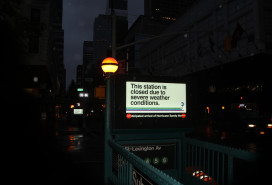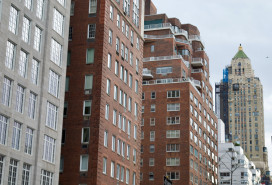'Deal of the Year' landlord wanted $2M in insurance and pre-approved cleaning supplies—and got it

At last week’s Real Estate Board of New York’s Residential Deal of the Year awards, top brokers in the city were recognized for their outstanding deals in sales and rentals.
And the brokers who sealed the deal for the best rental, Halstead’s Grace Hiura and Miyuki Katagiri and Ashley Reidy of Elegran Real Estate, successfully negotiated a yearlong lease agreeing to get $2 million in renter’s insurance and agree to only use certain cleaning products, a tall order in every sense of the word.
The details had us wondering: Can a landlord make such decrees? We haven’t heard back from the brokers for the details, but in the meantime, we caught up with a few experts who weighed in on these requests.
Turns out, as the name implies, landlords act as lords of their land, and can impart something of a lordship over their property, if they so chose. “There’s nothing illegal about this,” Sam Himmelstein, a tenant lawyer with Himmelstein McConnell Gribben, tells us. “But if you don’t like the rules, don’t sign the lease.”
He says it’s common for landlords to require a fair amount of renter’s insurance—usually up to $1 million—but that $2 million is pretty outrageous. That being said, it doesn’t discriminate in any way, meaning it’s just the latest in ever-evolving trends with landlords.
Himmelstein points out that many leases these days contain "no smoking" clauses or pet restrictions, both of which are perfectly legal and sway to the landlord's personal (or building) preferences. But when the landlord gets discriminatory, you run into legal issues. "Saying you can’t have male visitors, for instance, would be illegal,” he says.
As for the cost for this seven-digit insurance? Expect these renters to tack on an additional $200 to $600 more in their annual insurance bill over a basic $100,000 policy, says Jeff Schneider with Gotham Brokerage, an expert on renter’s insurance.
And the insurance isn't necessarily about protecting your stuff. “The insurance is really for the apartment below—if your bathtub or sink overflows and wrecks a floor, that’s a problem,” he says.
Both of our experts agree that there’s no real need to sign a lease on a place where you feel like you’re being watched over or policed.
“On a purely practical level,” Himmelstein says, “it may be indicative that you might be living in this landlord’s fiefdom.”
Related:
Ask an Expert: Can my landlord force me to get mandatory insurance?
Landlords can - and will - look into your legal background
6 ways to (legally) break your lease


























